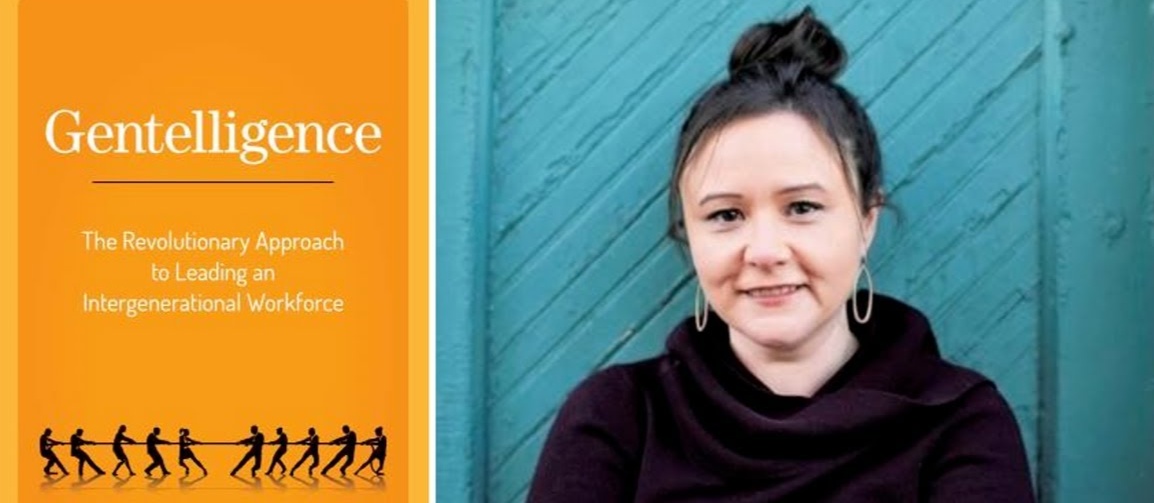A leap forward in AI ethics and safety
July 5, 2024

Megan Gerhardt : I was just 26 years old when I began my career as a professor, which meant I was closer in age to my students than many of colleagues. Because of this, while I often reached out to those older than me for guidance, I also found myself asking my students for their input and feedback as well. I learned so much in both directions, and have continued to use this strategy throughout my career (though I am not very close in age to my students anymore!). I became passionate about this kind of diversity as a source of learning and success, and began to do both academic research as well as speak to professionals across industries about it. In doing so, I found my positive view about the potential for generational differences was NOT widely shared. Most audiences I spoke with were instead experiencing frustration and conflict working with those in other generations, not learning and collaboration. This is what I wanted to change. The focus of my work over the last 10 years has been to try to change the way we narrate this conversation and shift our view of generational differences in the workplace to one of opportunity, not threat. This is what Gentelligence is all about–viewing the diversity of thought that comes from growing up during different eras of history as a kind of cultural diversity that can create a new kind of collaborative intelligence. I wrote the book to provide a new way of thinking on this topic, as the challenges we now face won’t be solved by any one generation. We need to leverage all kinds of expertise and learn from each other.
Megan Gerhardt: “People need to respect that each generation’s success requires them to create their own set of tools and remember that one generation’s achievement does not come at the expense of another’s. Instead, older generations should lend younger ones whatever wisdom they have gained on their paths and be open to learning lessons from them as well. With Gentelligence, every generation is both a teacher and a student.”
Megan Gerhardt: Organizations are desperately trying to understand whether there are generational differences in preferences about returning to the office (or not returning, as the case may be). I believe the quest to figure out how to manage in a hybrid workplace is the greatest leadership challenge of our time, and caution that we should not be relying on generational stereotypes to guide these decisions. For example, we were sure Gen Z would thrive in working remotely, yet multiple datasets have shown that this generation struggled the most working from home during the pandemic. We assumed because they are the most digitally savvy that they would not have trouble without an office, but we were wrong. This is the danger of assumptions and generational stereotyping: they create a one-dimensional picture of something quite complicated. Our youngest generations rely on the office for professional and personal networking much more so than older generations, and interacting in a physical workplace is an important part of building organizational identity and commitment early in one’s career. Without it, young employees don’t feel connected to their co-workers or their companies. Gen Zers are also more likely to have to share workspace at home with family or roommates when compared to other generations, making this a less desirable full time option for many. Gen Z surprisingly values face-to-face communication more so than other generations, despite their technology skills. However, they still want flexibility in their work arrangements, so companies need to find a way to create that balance. Organizations need to be cautious about making sweeping generalizations about any generation when crafting return to work strategies.
Megan Gerhardt: “Shift your thinking to see generational differences as a valuable kind of diversity of thought, one that can help us innovate, adapt to change, and create new solutions. We need to stop viewing other generations as adversaries, and instead, view them as allies and collaborators. There is such potential in this kind of learning, and we have only scratched the surface of what would be possible if we embraced it.”
Megan Gerhardt: I continue to be passionate about spreading the work of Gentelligence to different audiences. I love hearing the stories of how the practices in the book are changing the way people think across the world and across different industries. I would love to do more work exploring how generations are defined differently in different cultures, and also how we can continue to help leaders think differently about the role age and generation plays in their talent strategies.
Thank you Megan Gerhardt
Thank you Bertrand
Check out Megan’s new book: Gentelligence: The Revolutionary Approach to Leading an Intergenerational Workforce
Megan W. Gerhardt, @profgerhardt (news and updates)